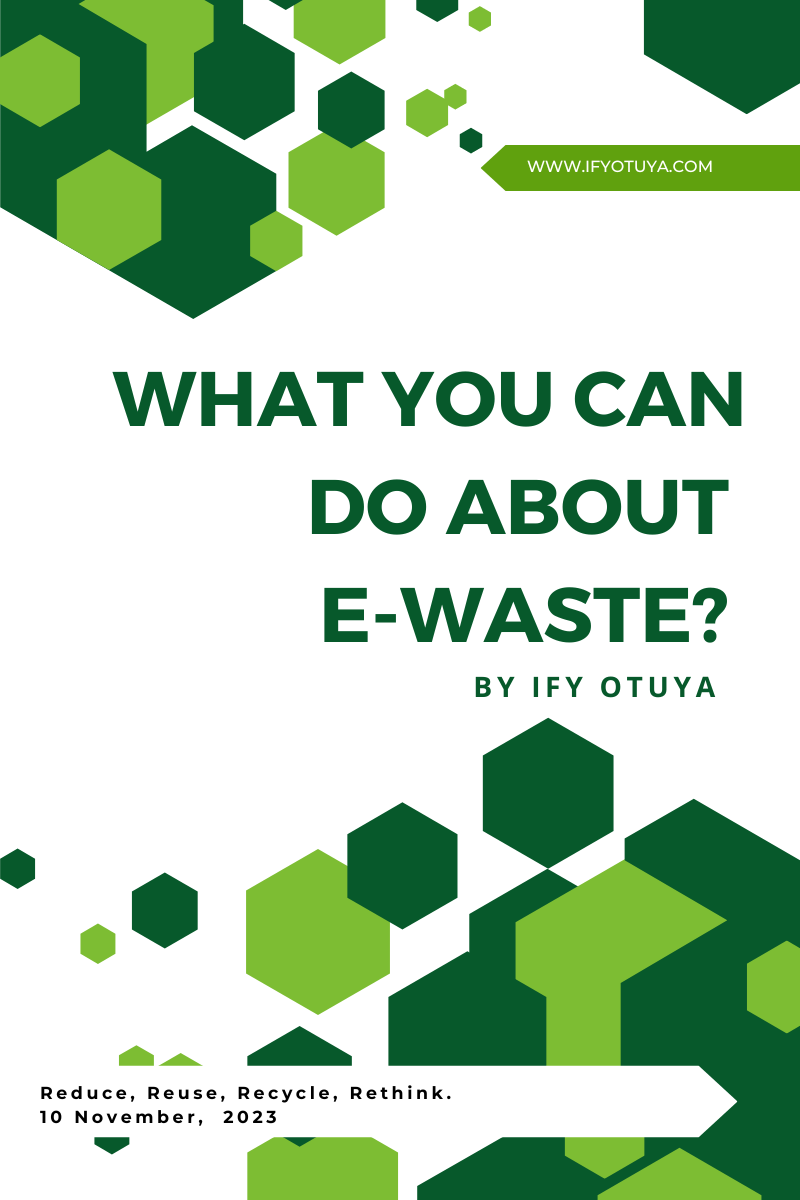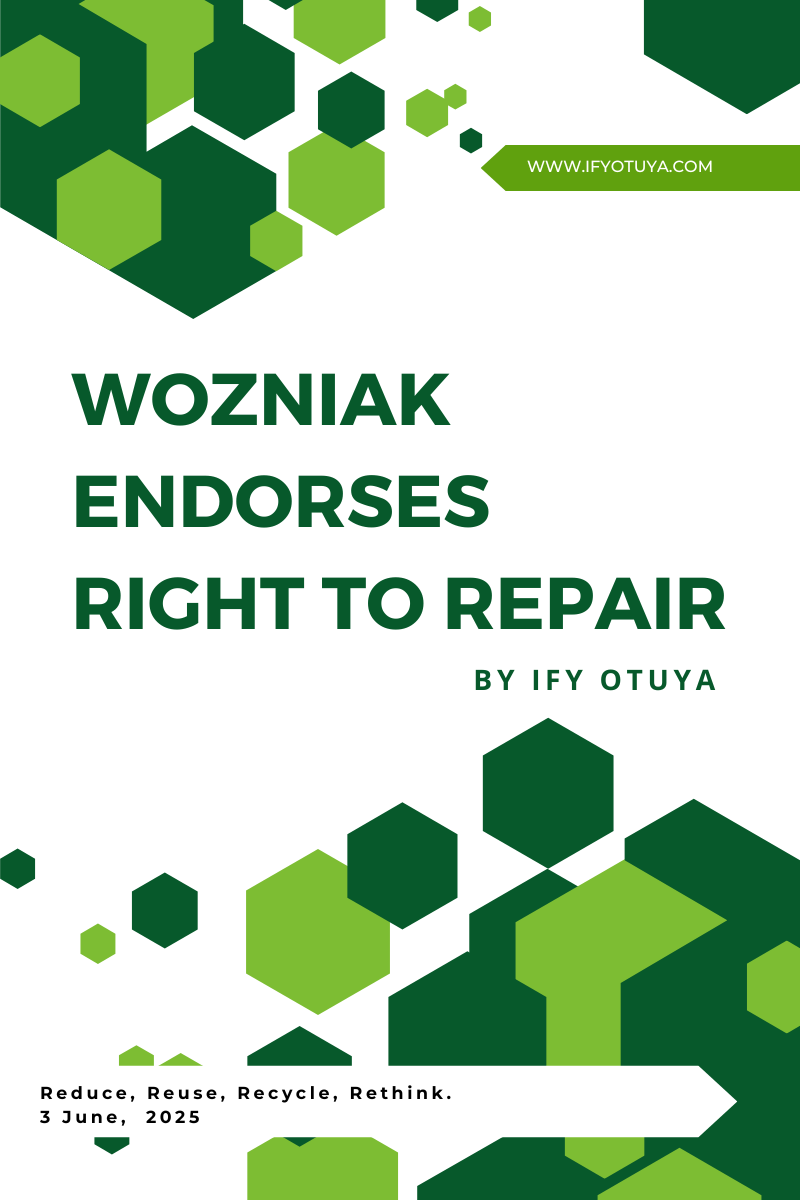– by Ify Otuya
E-waste is the fastest growing waste stream in the world today and the solution to the crisis of improper disposal lies in our hands. If you, as an individual, are wondering what you can do in your individual capacity to curb the growing menace of e-waste, two simple actionable answers lie below.
Engage only a certified e-waste recycler.
When you do decide that your e-waste is ripe for disposal, do not give your e-waste to informal handlers as they do not adhere to environmental considerations when treating e-waste. They may toil with their wheelbarrows from street to street in the hot sun, knocking on doors to collect e-waste but that does not mean that they are deserving of your e-waste. The problem of informal handlers does not exist in countries where recycling is adequately regulated but in other countries such as Nigeria and India, for example, informal handlers abound.
If you truly care about the environment and creating a clean greener world for us, our children and the generations after them, (just like the American forefathers who gave the banner of democracy as a gift to generations the world over to operate under) give your e-waste to only certified e-waste managers. This is an important consideration to make for people interested in solving the growing e-waste problem. Change after all does start with you and me, and if not now, then when? Certified e-waste recyclers are authorized by the State and Federal Government to handle e-waste. Informal handlers aren’t. They also utilize protective gear and adhere to best international practices when sorting, shredding, extracting (dust), separating (magnetic, water) and in all other stages of recycling. Informal handlers don’t. In other words, certified e-waste managers obey the rules to keep you and I safe but the same can’t be said about informal handlers.
Talk about e-waste.
E-waste awareness is key to solving the e-waste problem. There needs to be education created about how much e-waste is generated each year, where the e-waste goes (or doesn’t go), the implications of improper treatment of this e-waste on soil, water and air, and the various benefits of proper management of e-waste to electronics consumers and to wider society. In your individual capacity, you can contribute to the e-waste conversation. There are many resources online and offline that open minds to the topic of e-waste. You can invite friends over for drinks or food and then include a chat about e-waste to entertain. You can contribute to online and other public platforms holding conversations about e-waste, to make your concerns and perhaps, proffered solutions, heard.
These may seem minute, but they are fitting for the individual capacity, and collectively, do add up to significantly big action. There are also fictional characters being developed in the academic space to personalize and extend the conversation about e-waste. Examples of such characters can be found in the critically acclaimed storybook ‘E-waste Art’ (which can be purchased online at Ify Otuya and Amazon). You can purchase copies of the book for yourself and others to not only build awareness about the global e-waste crisis, but to also make the agenda for solving the e-waste crisis relatable to people across ages.
What steps have you taken to reduce e-waste? Let’s discuss eco-friendly practices in the comments.
Author’s Bio:

Ify Otuya is a passionate advocate for addressing e-waste challenges in Africa. As the Founder of June E-waste Academy, she has spearheaded the first e-waste academy in the African region, dedicated to promoting e-waste education, awareness, and sustainable solutions. Her commitment to this cause extends beyond the classroom, as she has also authored the book “E-waste Art,” a creative exploration of e-waste’s impact on our world. Ify’s mission is to bridge the knowledge gap surrounding e-waste issues and inspire positive change. For inquiries, collaborations, or to connect with her on this vital mission, feel free to reach out to her via email at missotuya@gmail.com.


